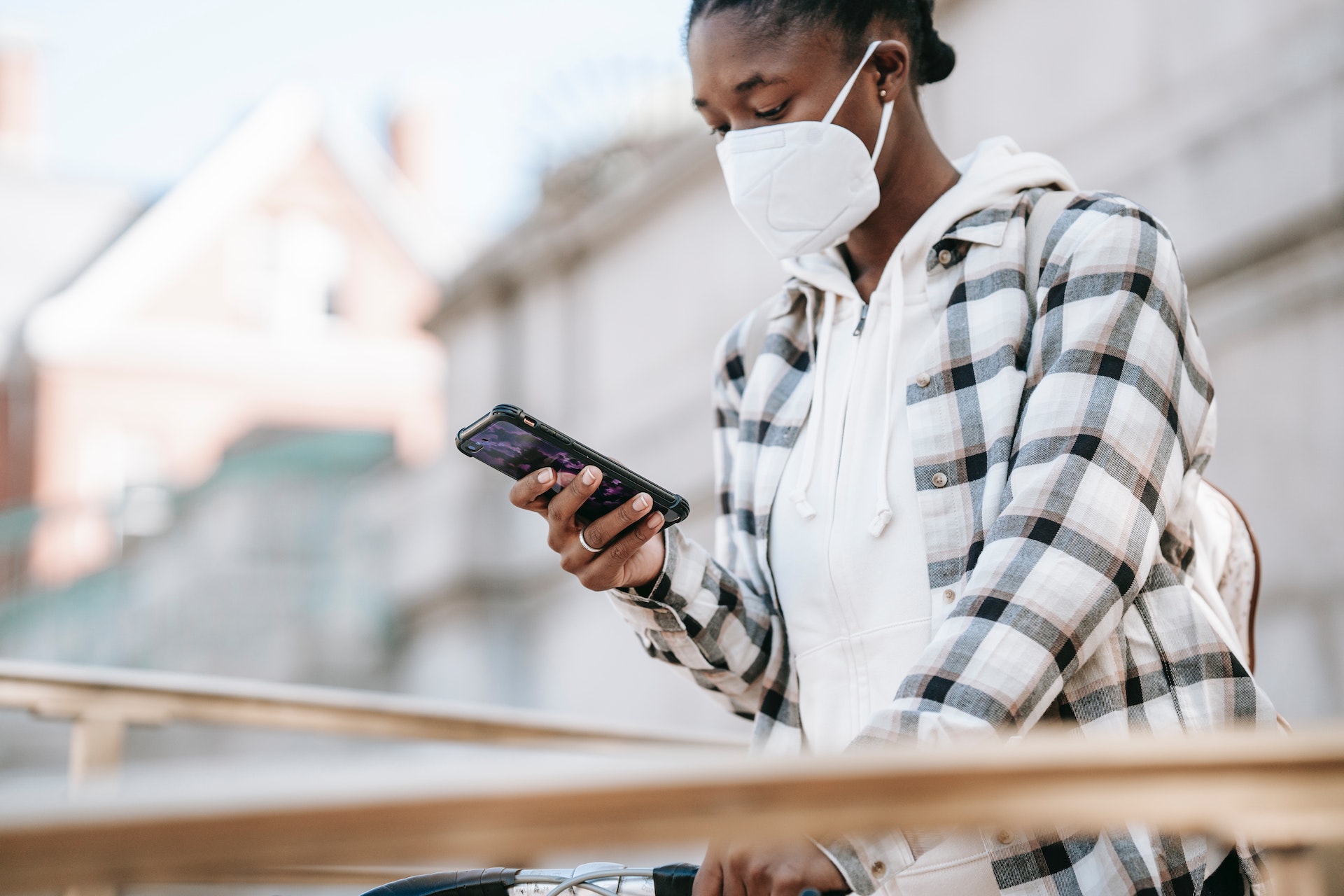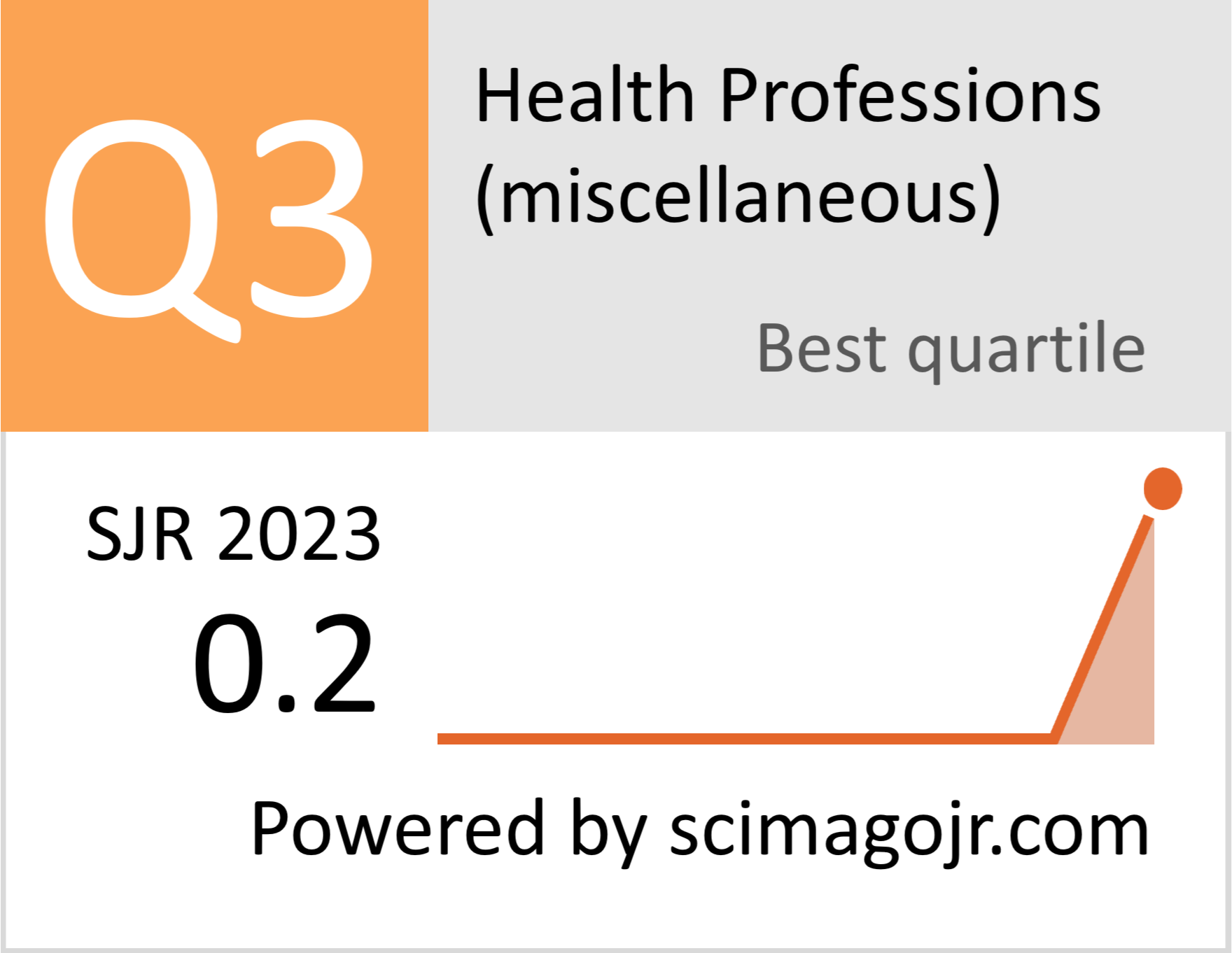Topics, Concerns, and Feelings Commented on Facebook after the First Death by COVID-19 in Mozambique
Temas, preocupaciones y sentimientos comentados en Facebook tras la primera muerte por COVID-19 en Mozambique

This work is licensed under a Creative Commons Attribution-NonCommercial-NoDerivatives 4.0 International License.
Show authors biography
In Mozambique, as in other parts of the world, COVID-19 has had consequences in many areas, especially in the health sector. This study aims to analyze the comments made and discussed on Facebook after the first death from the disease, verifying the main topics, concerns, and feelings that users most expressed on that social network. Using the content analysis method, IRaMuTeQ® generated a dendrogram focused on death, diagnostic circumstances, disease prevention, and restrictive government measures. Users also raised concerns about health care professionals, family and community, and feelings of sadness. Although the feelings presented reflect the language used in comments on a social network, and it is impossible to diagnose from them, this study creates paths for further research in the area. Therefore, for the first time, it demonstrates results from a mental health study with data analyzed from a social network in Mozambique. These results can guide and alert local health entities about health communications, strategies, and attention that should be given to the mental health of individuals during this pandemic and in the long term.
Article visits 833 | PDF visits 129
- World Health Organization [WHO]. WHO Coronavirus (COVID-19) Dashboard. WHO; 2022. Available from: https://covid19.who.int/info (accessed March 21, 2023).
- Dyer O. Covid-19: Africa records over 10 000 cases as lockdowns take hold. BMJ 2020;369:1–1. doi: https://doi.org/10.1136/bmj.m1439
- Obi-Ani NA, Anikwenze C, Isiani MC. Social media and the Covid-19 pandemic: Observations from Nigeria. Cogent Arts Humanit. 2020;7. doi: https://doi.org/10.1080/23311983.2020.1799483
- MOÇAMBIQUE. Conselho de Ministros. Boletim da República. Maputo: Imprensa Nacional de Moçambique; 2020.
- MOÇAMBIQUE. Ministério da Saúde. Comunicado diário de actualização de casos de coronavirus. Maputo: MISAU. Maputo; 2020.
- Cox CR, Swets JA, Gully B, Xiao J, Yraguen M. Death Concerns, Benefit-Finding, and Well-Being During the COVID-19 Pandemic. Front Psychol. 2021;12:1–11. doi: https://doi.org/10.3389/fpsyg.2021.648609
- Nicola M, Alsafi Z, Sohrabi C, Kerwan A, Al-Jabir A, Iosifidis C, et al. The socio-economic implications of the coronavirus pandemic (COVID-19): A review. Int J Surg. 2020;78:185–93. doi: https://doi.org/10.1016/j.ijsu.2020.04.018
- Masciantonio A, Bourguignon D, Bouchat P, Balty M, Rimé B. Don’t put all social network sites in one basket: Facebook, Instagram, Twitter, TikTok, and their relations with well-being during the COVID-19 pandemic. PLoS One. 2021;16:1–14. doi: https://doi.org/10.1371/journal.pone.0248384
- Sarkadi A, Sahlin Torp L, Pérez-Aronsson A, Warner G. Children’s Expressions of Worry during the COVID-19 Pandemic in Sweden. J Pediatr Psychol. 2021;46:939–49. doi: https://doi.org/10.1093/jpepsy/jsab060
- Carvalho PM de M, Moreira MM, Oliveira MNA de, Landim JMM, Neto MLR. The psychiatric impact of the novel coronavirus outbreak. Psychiatry Res. 2020;286:1–2. doi: https://doi.org/10.1016/j.psychres.2020.112902
- Wang C, Pan R, Wan X, Tan Y, Xu L, Ho C, et al. Immediate Psychological Responses and Associated Factors during the Initial Stage of the 2019 Coronavirus Disease (COVID-19) Epidemic among the General Population in China. Int J Environ Res Public Health. 2020;17:1–25. doi: https://doi.org/10.3390/ijerph17051729
- Wu T, Jia X, Shi H, Niu J, Yin X, Xie J, et al. Prevalence of mental health problems during the COVID-19 pandemic: A systematic review and meta-analysis. J Affect Disord. 2021;281:91–8. doi: https://doi.org/10.1016/j.jad.2020.11.117
- Sinnenberg L, Buttenheim AM, Padrez K, Mancheno C, Ungar L, Merchant RM. Twitter as a tool for health research: A systematic review. Am J Public Health. 2017;107(1):e1–8. doi: https://doi.org/10.2105/AJPH.2016.303512
- Clement J. Facebook - statistics & facts. Statista 2022. https://www.statista.com/topics/751/facebook (accessed January 1, 2023).
- Oh HJ, Ozkaya E, Larose R. How does online social networking enhance life satisfaction? the relationships among online supportive interaction, affect, perceived social support, sense of community, and life satisfaction. Comput Human Behav. 2014;30:69–78. doi: https://doi.org/10.1016/j.chb.2013.07.053
- Paula FR de, Mello MG da S. Análise de Redes Sociais: a formação de grupos do Facebook frente à epidemia da COVID-19 no Brasil. VITTALLE - Rev Ciências Da Saúde. 2020;32(1):32–42. doi: https://doi.org/10.14295/vittalle.v32i1.11406
- Crisóstomo S, Matos AR, Borges M, Santos M. O Facebook faz bem à saúde? O caso “MAIS PARTICIPAÇÃO melhor saúde” em Portugal. Rev Bras Pesqui Em Saúde. 2019;21:123–33. doi: https://doi.org/10.21722/rbps.v21i2.29085
- Raamkumar AS, Tan SG, Wee HL. Measuring the Outreach Efforts of Public Health Authorities and the Public Response on Facebook during the COVID-19 Pandemic in Early 2020: Cross-Country Comparison. J Med Internet Res. 2020;22(5):e19334. doi: https://doi.org/10.2196/19334
- Revez J. Redes sociais e sociais e desinformação na saúde: o caso do facebook. Rev EDICIC. 2022;2(3):1–21.
- Pang PCI, Cai Q, Jiang W, Chan KS. Engagement of government social media on facebook during the COVID-19 pandemic in Macao. Int J Environ Res Public Health. 2021;18(7):14–7. doi: https://doi.org/10.3390/ijerph18073508
- Ribeiro PEO. COVID-19 and DGS on Facebook: analyzing Health in images and written text. J Semiot Cult. 2020;2021(10):7–20. doi: https://doi.org/10.25768/21.04.04.10.06
- Li X, Zhou M, Wu J, Yuan A, Wu F, Li J. Analyzing COVID-19 on Online Social Media: Trends, Sentiments and Emotions. ArXiv. 2020;3:1–9. doi: https://doi.org/10.48550/arXiv.2005.14464
- Chang A, Xian X, Liu MT, Zhao X. Health Communication through Positive and Solidarity Messages Amid the COVID-19 Pandemic: Automated Content Analysis of Facebook Uses. Int J Environ Res Public Health. 2022;19(10). doi: https://doi.org/10.3390/ijerph19106159
- Hung M, Lauren E, Hon ES, Birmingham WC, Xu J, Su S, et al. Social network analysis of COVID-19 sentiments: Application of artificial intelligence. J Med Internet Res. 2020;22(8):1–19. doi: https://doi.org/10.2196/22590
- Islam MS, Sarkar T, Khan SH, Kamal AHM, Murshid Hasan SM, Kabir A, et al. COVID-19-Related infodemic and its impact on public health: A global social media analysis. Am J Trop Med Hyg. 2020;103(4):1621–9. doi: https://doi.org/10.4269/ajtmh.20-0812
- Tan SG, Sesagiri Raamkumar A, Wee HL. Users’ Beliefs Toward Physical Distancing in Facebook Pages of Public Health Authorities During COVID-19 Pandemic in Early 2020. Heal Educ Behav. 2021;48(4):404–11. doi: https://doi.org/10.1177/10901981211014428
- Valdez D, ten Thij M, Bathina K, Rutter LA, Bollen J. Social media insights into US mental health during the COVID-19 pandemic: Longitudinal analysis of twitter data. J Med Internet Res. 2020;22(12):1–18. doi: https://doi.org/10.2196/21418
- Hsieh HF, Shannon SE. Three approaches to qualitative content analysis. Qual Health Res. 2005;15(9):1277–88. doi: https://doi.org/10.1177/1049732305276687
- Pandarachalil R, Sendhilkumar S, Mahalakshmi GS. Twitter Sentiment Analysis for Large-Scale Data: An Unsupervised Approach. Cognit Comput. 2015;7:254–62. doi: https://doi.org/10.1007/s12559-014-9310-z
- Júnior JG, Sales JP, Silva FCT, Filho JDQ, Cavalcanti RCPB, Landim JMM, et al. Análise da saúde mental da população carcerária na pandemia de Sars-Cov-2: análise qualitativa. Psychiatry Res. 2021;296:113669. doi: https://doi.org/10.1016/j.psychres.2020.113669
- Reinert M. Alceste une méthodologie d’analyse des données textuelles et une application: Aurelia De Gerard De Nerval. Bull Méthodologie Sociol. 1990;26(1):24–54. doi: https://doi.org/10.1177/075910639002600103
- Camargo BV, Justo AM. Tutorial para uso do software IRaMuteQ. Florianópolis: Laboratório de Psicologia Social da Comunicação e Cognição - UFSC – Brasil; 2018.
- Loubère L, Ratinaud P. Documentation IRaMuTeQ 0.6 alpha 3 version 0.1. Toulouse, France: Plone & Python; 2014.
- Lahlou S. Text mining methods: an answer to Chartier and Meunier. Pap Soc Represent. 2012;20(2):1–7.
- Ahmed MS, Aurpa TT, Anwar MM. Detecting sentiment dynamics and clusters of Twitter users for trending topics in COVID-19 pandemic. PLoS One. 2021;16(8):1–20. doi: https://doi.org/10.1371/journal.pone.0253300
- Cai R, Zhang J, Li Z, Zeng C, Qiao S. Using Twitter Data to Estimate the Prevalence of Symptoms of Mental Disorders in the United States During the COVID-19 Pandemic: Ecological Cohort Study. JMIR Publications. 2022;6(12):1–11. doi: https://doi.org/10.2196/37582
- Keller SN, Honea JC, Ollivant R. How social media comments inform the promotion of mask-wearing and other covid-19 prevention strategies. Int J Environ Res Public Health. 2021;18(11):Article5624. doi: https://doi.org/10.3390/ijerph18115624
- Correia RB, Wood IB, Bollen J, Rocha LM. Mining Social Media Data for Biomedical Signals and Health-Related Behavior. Annual Review of Biomedical Data Science [Internet]. 2020 Jul 20;3(1):433–58. doi: http://dx.doi.org/10.1146/annurev-biodatasci-030320-040844
- Kaila RP, Prasad AVK. Informational Flow on Twitter - Corona Virus Outbreak – Topic. Int J Adv Res Eng Technol. 2020;11:128–34.
- Berry N, Emsley R, Lobban F, Bucci S. Social media and its relationship with mood, self-esteem and paranoia in psychosis. Acta Psychiatr Scand. 2018;138(6):558–70. doi: https://doi.org/10.1111/acps.12953
- Obiała J, Obiała K, Mańczak M, Owoc J, Olszewski R. COVID-19 misinformation: Accuracy of articles about coronavirus prevention mostly shared on social media. Heal Policy Technol. 2021;10(1):182–6. doi: https://doi.org/10.1016/j.hlpt.2020.10.007
- Bekele D, Tolossa T, Tsegaye R, Teshome W. The knowledge and practice towards COVID-19 pandemic prevention among residents of Ethiopia. An online cross-sectional study. PLoS One. 2021;16:1–13. doi: https://doi.org/10.1371/journal.pone.0234585
- Rao LN, Shetty A, Latha Senthilkumar P, Shetty KS, Shetty B, Natarajan S, et al. Knowledge, attitude and practice of dental students and practitioners during the early days of COVID-19 pandemic in India: A cross-sectional study. Int J Clin Pract. 2021;75(11):1–10. doi: https://doi.org/10.1111/ijcp.14858
- Liu Q, Luo D, Haase JE, Guo Q, Wang XQ, Liu S, et al. The experiences of health-care providers during the COVID-19 crisis in China: a qualitative study. Lancet Glob Heal. 2020;8(6):e790–8. doi: https://doi.org/10.1016/S2214-109X(20)30204-7
- Silva SM, Rosa AR. The impact of Covid-19 on the students’ mental health and the role of teaching institutions to protect and promote their emotional well-being. Praksis. 2021;2:189–206. doi: https://doi.org/10.25112/RPR.V2I0.2446
- Li Q, Guan X, Wu P, Wang X, Zhou L, Tong Y, et al. Early Transmission Dynamics in Wuhan, China, of Novel Coronavirus–Infected Pneumonia. N Engl J Med. 2020;382:1199–207. doi: https://doi.org/10.1056/nejmoa2001316
- Lwin MO, Lu J, Sheldenkar A, Schulz PJ, Shin W, Gupta R, et al. Global sentiments surrounding the COVID-19 pandemic on Twitter: Analysis of Twitter trends. JMIR Public Heal Surveill. 2020;6(2):1–4. doi: https://doi.org/10.2196/19447
- Curcio CSS, Moreira-Almeida A. Investigação dos conceitos de religiosidade e espiritualidade em amostra clínica e não clínica em contexto brasileiro: Uma análise qualitativa. Interação Em Psicol. 2019;23(2):281–92. doi: https://doi.org/10.5380/psi.v23i02.65434
- Moore CA, Ruisch BC, Granados Samayoa JA, Boggs ST, Ladanyi JT, Fazio RH. Contracting COVID-19: a longitudinal investigation of the impact of beliefs and knowledge. Sci Rep. 2021;11:1–12. doi: https://doi.org/10.1038/s41598-021-99981-8
- Carvalho KM, Silva CRDT, Felipe SGB, Gouveia MT de O. A crença em saúde na adoção de medidas de prevenção e controle da COVID-19. Rev Bras Enferm. 2010;74(1):1–4. doi: https://doi.org/10.1590/0034-7167-2020-0576
- Vasco SADJ. Aplicabilidade do marketing digital como meio de promoção do marketing social em meio à pandemia da covid-19 no contexto moçambicano. Rev Cient UEM. 2020:1–10.



